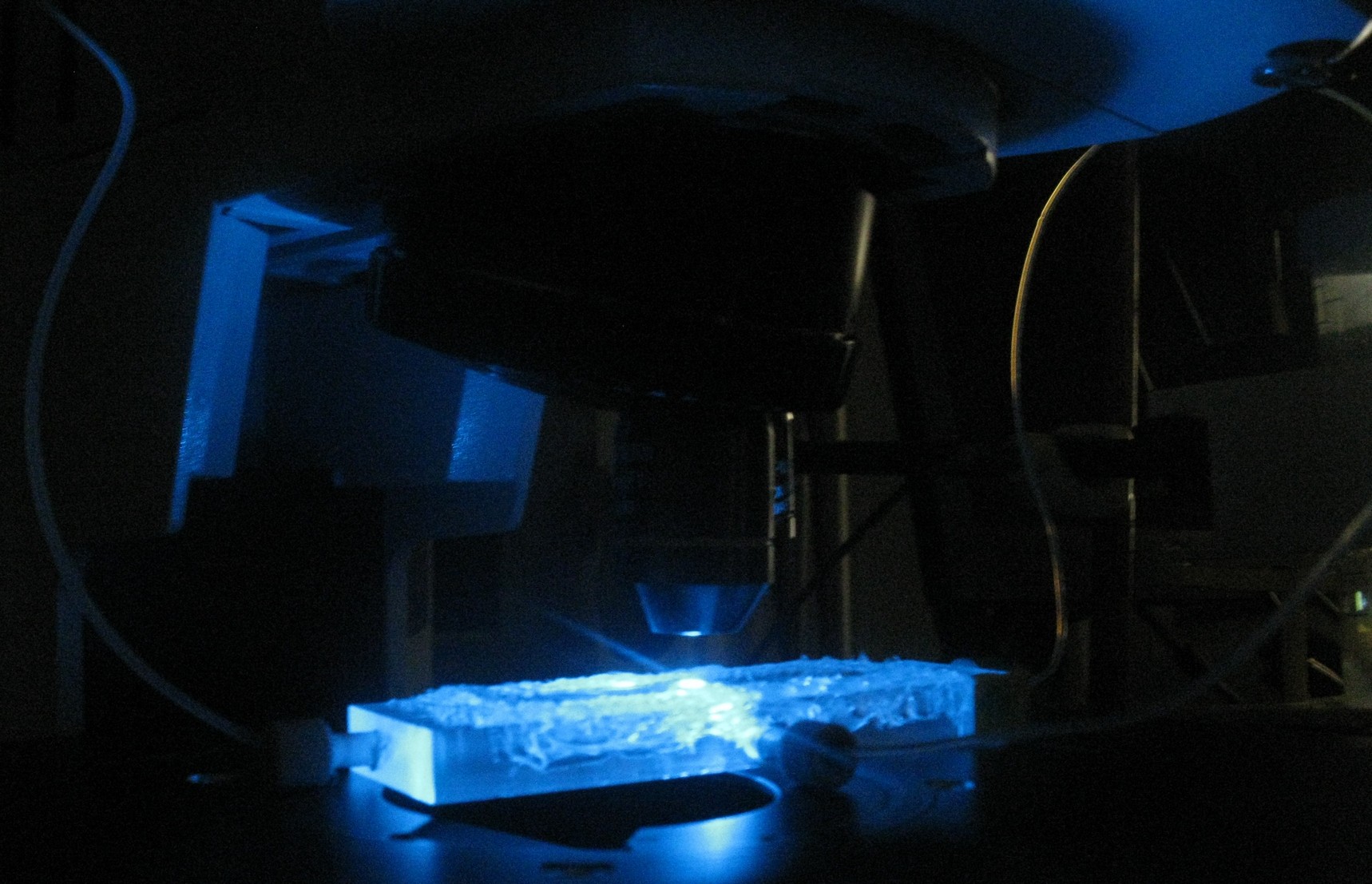Team:Wageningen UR/Project/DevicesMeasuringOscillations
From 2011.igem.org
(→Customary fluidic device designed by Team Wageningen UR to measure oscillations) |
(→Customary fluidic device designed by Team Wageningen UR to measure oscillations) |
||
| Line 28: | Line 28: | ||
By chance an oscillatory behaviour of transfomed ''E.coli'' containing the [[Team:Wageningen_UR/Project/CompleteProject1Description#Streamlined_Design| streamlined construct]] was observed in one of the experiments performed with a plate reader. This suggested oscillations could occur even without applying any flow over the wells. Letting the [[Team:Wageningen_UR/Project/ModelingProj1#Writing_a_modeling_tool_in_matlab| modeling tool]] iterate over a range of cell desities while keeping the flow rate constant at 0 confirmed that [[Team:Wageningen_UR/Project/ModelingProj1#Conclusions_for_our_system| oscillations could occur]] at high cell densities. Therefore the measurements for oscillatory behaviour of the construct were taken without applying any flow. | By chance an oscillatory behaviour of transfomed ''E.coli'' containing the [[Team:Wageningen_UR/Project/CompleteProject1Description#Streamlined_Design| streamlined construct]] was observed in one of the experiments performed with a plate reader. This suggested oscillations could occur even without applying any flow over the wells. Letting the [[Team:Wageningen_UR/Project/ModelingProj1#Writing_a_modeling_tool_in_matlab| modeling tool]] iterate over a range of cell desities while keeping the flow rate constant at 0 confirmed that [[Team:Wageningen_UR/Project/ModelingProj1#Conclusions_for_our_system| oscillations could occur]] at high cell densities. Therefore the measurements for oscillatory behaviour of the construct were taken without applying any flow. | ||
| - | |||
| - | + | For the experiments, an overnight culture of the cells containing the relevant construct was spun down and resuspended in PBS. The resuspended culture was inoculated in the device and left there to sit for a while. Since the bacteria were bottom fed with LB as seen in the set up section of [[figure X+2]], only the bacteria which settled down in the wells survived, while the bacteria in PBS starved. This is shown in the short video below. The pictures were taken every ten minutes. | |
| - | + | ||
| - | + | ||
[[File:PBS_cellgrowth_bottomfeed-1.tif|center]] | [[File:PBS_cellgrowth_bottomfeed-1.tif|center]] | ||
Revision as of 12:00, 19 September 2011
 "
"



